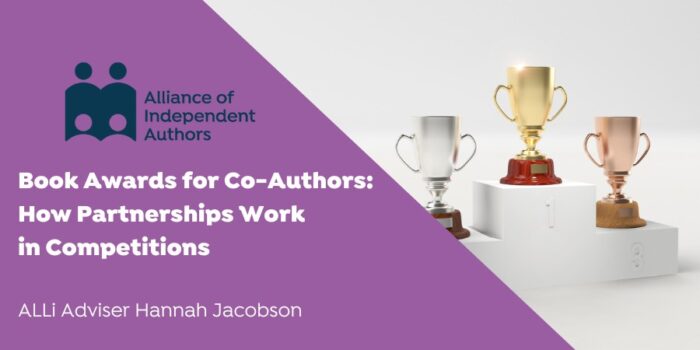A while ago, we posed some questions about the qualities that we believe a writer must have if they are to succeed at self-publishing.
These are largely questions of character and dispostion, qualities an indie author needs to have to stay the course — like bravery, resilience, and a fondness for work.
If you've considered these qualities and satisfied yourself that you have what it takes, there are six final questions you should ask yourself before taking the plunge.
Have you:
Tried to find an agent and/or publisher?
Yes, great books can fail to make it through the gatekeeping process, especially books that are literary, or unusual, or in genres that the industry does not perceive as selling well. On the other hand, many books fail to find an agent and/or publisher because the book just isn't ready. The process of trying to achieve publication — taking the rejection, learning and applying the lessons, mastering your craft over time — is often a necessary one, for writers to get real about what’s involved in putting together a book worth reading.
Not everybody will want to choose the trade pathway but it's worth asking why you're not — and being honest with yourself about the answer.
A plan for copyediting, formatting, cover design, ISBNs?
There's more to making a book than writing it. Have you taken on board all the functions you will need to master if you are to successfully self-publish? They are all very much learn-by-doing activities — but you need to be realistic about the time and energy commitment they take.
Understood Your Niche?
Niche markets addressing special interests are often seen as too unprofitable to be of interest to trade publishing. In these overlooked niches is where many indie authors prosper. Sometimes in the course of their endeavours, they create new genres and go mainstream (like S&M erotica for middle-class females — who knew?).
Even if you see yourself as more mainsteam, you need an understanding of where you fit in the publishing/reading ecosystem.
Worked Out Who Your Reader Is?
Some authors become self-publishers because they are recognised experts, or to enhance their standing in their field, or to justify an increase in their fees. Some because they are committed to a cause, or have a story that just has to be told. Some because they want to inspire, amuse or entertain.
Regardless of their primary motive for writing, successful self-publishers all need to develop a marketer‘s sensibility. They may not use marketing terms but they will not survive, never mind thrive, if they are not attuned to the needs of their particular readership and able to communicate with them.
A Plan for Reaching Those Readers? (AKA A Marketing Plan)
As a self-published writer, selling your book will probably only happen if you make it happen.
How are you going to make people aware of your book? How will you make them interested? How will you find your audience?
As an indie, you will need to to go where most of your readers are most likely to be found online, to their forums and blogs, where most of them hang out and make it your business to understand their concerns. And how your writing will serve. Will it inspire? Entertain? Amuse? Inform? These are questions to answer before you publish your book.
A plan for your next book?
Are you using a self-published book as an “attractor” for agent or trade publisher? Or do you want to keep your own rights and grow your own audience over time? Offers can come along that divert you from a chosen path, of course, but understand your motives and you're more likely to end up where you want.
If you have or can develop the 10 character traits you need to succeed as an indie author, and you can answer the six questions above to your satisfaction, congratulations.
You’re ready to self-publish.
Bring on the book.
~





Excellent post – thanks. It is so important to set up a professional team of helpers (often a mixture of professionals and enthusiastic amateurs) when you are preparing to launch your first books. There are lots of bases to cover, and to my mind, quality is even more important for Indies than it is for trad publishers. Because Indies have more to prove and credibility to build (esp. when starting out).
The questions I like. But, to be very honest, they remind me (as they should), of why writing is no longer stress free once we make it a business. The marketing and selling part of the writing business is absolutely not fun. I think that is the conflict many indie authors have – art vs. eat. It’s that need to eat that gets between my primal need to put word to paper, and my human need to sustain myself.
I know what you mean Marquita and beta readers, critique groups and others can fulfil that role for a writer. It’s not the rejection, per se, that does the trick but the feedback from others and the willingness to edit, rewrite, edit again. It seems to me that the question is worth asking. Thanks so much for the feedback and good luck with your book.
Great questions and points – I take issue with only one. Asking if an author has first tried everything possible to get published traditionally relegates self-publishing to a back-up plan, when in fact more and more authors are choosing self-publishing as a first option because they prefer the freedom and flexibility. Trust me, there’s plenty of “rejection” experience to be had outside the halls of a publishing house … and the learning curve is a heck of a lot faster and more rewarding for those willing to treat their writing as a business.